
Trinidad-Alcala-Arcos is part of the UCI PRIME-LC program, where she hopes to make a difference in caring for those who have been neglected by the health care system.
During the pandemic, Trinidad Alcala-Arcos lost her father to healthcare inequalities.
Alcala-Arcos always wanted to be a doctor but initially took a different path and became a music teacher, following the footsteps of her musician parents.
“I thought that's what I was going to end up doing because my parents were musicians. But medicine always seemed to call me back, especially during the pandemic. That was a very pivotal point because that's when my dad passed away,” Alcala-Arcos said. “Unfortunately, his journey and his battle with COVID-19 really taught me about the importance of having bicultural and bilingual physicians.”

Trinindad Alcala-Arcos with her family.
Alcala-Arcos is now a master's student at UC Irvine school of Medicine Program in Medical Education for the Latino Community (PRIME-LC). The program is now celebrating 20 years, helping Latino students realize their dreams of becoming doctors.
More than 20 years ago, educators at UCI’s medical school saw a problem with the lack of Latino doctors to serve its community.
Currently, California has a high Latino population, reaching 40%, with further increases projected to 50% by the year 2050. However,But the lack of Latino physician representation is still an issue to be addressed, as only 6% of U.S. physicians are Latino or Latina.
A group of physicians led by Dr. Alberto Manetta organized and spent years meeting with local and state officials to acquire funding for the program. In 2004, UCI School of Medicine (SOM) instituted PRIME-LC, the first medical education program in the nation dedicated to the distinctive health care needs of the Latino community.
Dr. Charles Vega, who has served as a director of PRIME-LC since 2008, told CALÓ News that programs like PRIME-LC are necessary because of the disparities that exist across different patient populations in different geographic areas across the United States. “These inequities are not new but promote higher rates of death and disease, usually among the most disadvantaged among us,” Dr. Vega said. His desire to help disadvantaged Latino communities was also one of the reasons he joined the program. “PRIME-LC resonates with me as a means to reduce health disparities.” As the program is celebrating its anniversary, he said he is most proud of all the graduates who are doing amazing work and staying true to the mission.
According to an analysis published by Penn Medicine researchers found that “patient-provider race concordance led to higher odds of receiving the maximum patient experience score,” which means that patients with similar racial or ethnic backgrounds to their physicians perform better when it comes to their health. However, the lack of Latino representation in the field leads to significant healthcare barriers, inequalities, and poorer outcomes for the Latino population.
Dr. Vega believes physicians must speak the language and also understand the cultural differences in the communities. “Every patient has their own personal culture and needs to be met where they live,” Dr. Vega said. “But understanding the general values and traditions that our community holds dear allows us to more quickly bond with patients and earn trust.”

Dr. Charles Vega director of PRIME-LC.
He also said that currently what is contributing to the lack of Latino physicians is the long-standing problem that stems from the lack of opportunity. “I know many incredible Latino students who desperately want to return to serve their community, but they matriculate in poor schools that fail to graduate many students into post-secondary education,” he said. “I feel that the unequal treatment of Latinos has affected the community for multiple generations. In fact, I’m encouraged that our healthcare systems and policies are better reflecting this impact, and PRIME-LC is a tremendous example of action in the face of longstanding challenges.”
As Alcala-Arcos experienced firsthand some of the inequalities and barriers her parents faced during the pandemic and that gave her the strength to pursue her career in the medical field because she sought to provide care for people like her father and her family. She said it’s important to provide a sense of safety, especially in such a vulnerable state her father was in.
Ironically, her father, who had COVID-19, ended up in the same hospital where she used to shadow and volunteer. Even though she felt very comfortable and familiar with the place, it was a very scary experience for her father, Isauro Alcala, who did not speak English at all. Isauro immigrated to the U.S. from Mexico, but until the day he became hospitalized, he had never seen a doctor because of the fear of exposing his immigration status.
”So for him, me not being there as someone who spoke his language and who spoke the unique experiences that he was going through was really detrimental to his mental health,” Arcos-Alcala said. “I saw him over FaceTime just deteriorate rapidly and, you know, the number of Latino physicians who speak Spanish is very low. As we have heard the numbers, especially these days lately with National Latino Physician Day, 6% of Latino physicians for the 40% of the Latino population in California is not enough. And so for my dad to not have a provider who spoke his language, I think really impacted the way he understood his trajectory at the hospital. Meaning he didn't understand when and how to take certain medications, why he was taking certain medications and how it would affect his overall health.”
As a health advocate, Arcos-Alcala believes there's an importance of clinical trials, informed consent and interpreters. Even though some hospitals offer translations through an iPad, she said it's certainly different when the provider is in front of you and can sit down, fold your hand and walk you through every step. “So I think for my dad, it really was just uncertainty and fear," Arcos-Alcala said.
Even though she was undocumented but determined, Alcala-Arcos did not let anything stop her from achieving her dream of becoming a doctor. The DACA student hopes to make a difference in caring for those who have been neglected by the healthcare system.
When she decided to pursue a career as a physician, she had to work three jobs and find a balance between financing her education, going to school and also keeping her mental health in check. Luckily for her, Deferred Action for Childhood Arrivals (DACA) was enacted right around the middle of her first year of college and it opened up a lot of opportunities for her to work, build a resume and get scholarships.
Alcala-Arcos recalls her counselors and people from the school telling her not to even bother applying to medical school because of her immigration status, they could easily reject her from the application process. And she would tell them that they were right but she would also tell them that not applying is also an automatic no. “And so I applied; I will admit I didn't get in the first time and that's probably for other reasons. And the second time I applied, I was fortunate enough to get interviews specifically at the UCI PRIME-LC program. And when that door opened for me, I saw it, I took it and I ran with it and that's why I'm here,” she said.
Now that she is a medical student, she believes one of the biggest barriers for students in her position is the financial aspect.
“Most of us come from low-income backgrounds and we are the first generation in our families to pursue post-secondary education, let alone a doctorate degree. And so not having a mentor who really has the background that I did was really tough to find, but I eventually did,” Alcala-Arcos said. “I found Pre-Health Dreamers, I found Immigrants rising. I also found a lot of advocates in my community, but it's still this huge weight to carry. So it's been a lot of challenges, but I've also been fortunate enough to find a community who supports me in that way.”
In considering her future, she believes another barrier she will face is getting hired as a DACA recipient. “ I know there's a lot of hope with visas, which was proposed by the Biden administration but with the new election coming up in November, it's really difficult to say what's going to happen with the future of our status and our future of our careers,” Alcala-Arcos said.

Medical Education building at UC Irvine.
Dr. Vega believes that the Latino vote is currently more important than ever when it comes to making decisions about our healthcare. “Everyone should exercise their right to vote. I see healthcare and economic and educational opportunities as clear priorities nationally and within the Latino community specifically,” he said.
His advice to first-generation college students in underserved communities who want to pursue medical school but feel lost without guidance or access to financial resources is to look for a mentor.
“Get one mentor, but try to get one or three who can guide you on what you need to grow to the next level. And each experience is a growth opportunity,” he said.
Alcala-Arcos also shared with CALÓ News some advice for the future generations of physicians. “My advice is to advocate for yourself and be confident that everything will eventually work out. You know, there are going to be barriers and there are going to be challenges and it's going to be so tough, but the weight is going to be so worth it and the reward that comes with it as well.”

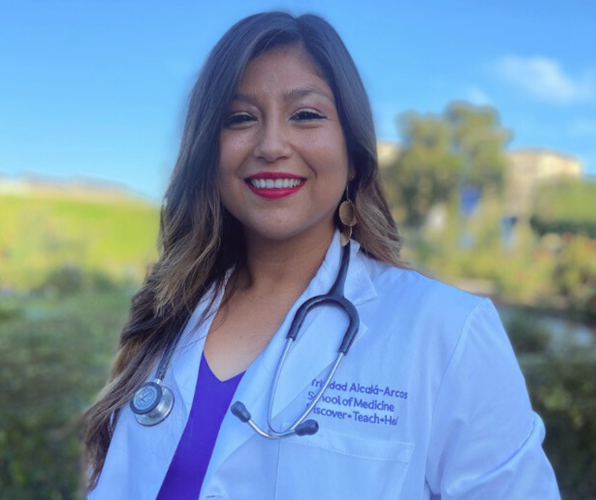
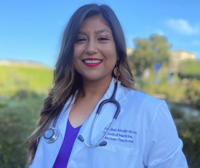



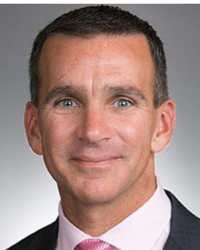

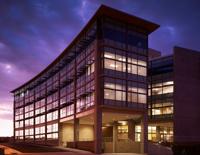

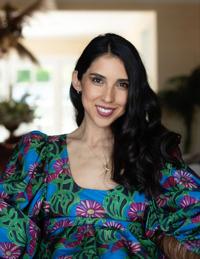





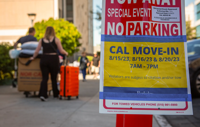
(0) comments
Welcome to the discussion.
Log In
Keep it Clean. Please avoid obscene, vulgar, lewd, racist or sexually-oriented language.
PLEASE TURN OFF YOUR CAPS LOCK.
Don't Threaten. Threats of harming another person will not be tolerated.
Be Truthful. Don't knowingly lie about anyone or anything.
Be Nice. No racism, sexism or any sort of -ism that is degrading to another person.
Be Proactive. Use the 'Report' link on each comment to let us know of abusive posts.
Share with Us. We'd love to hear eyewitness accounts, the history behind an article.